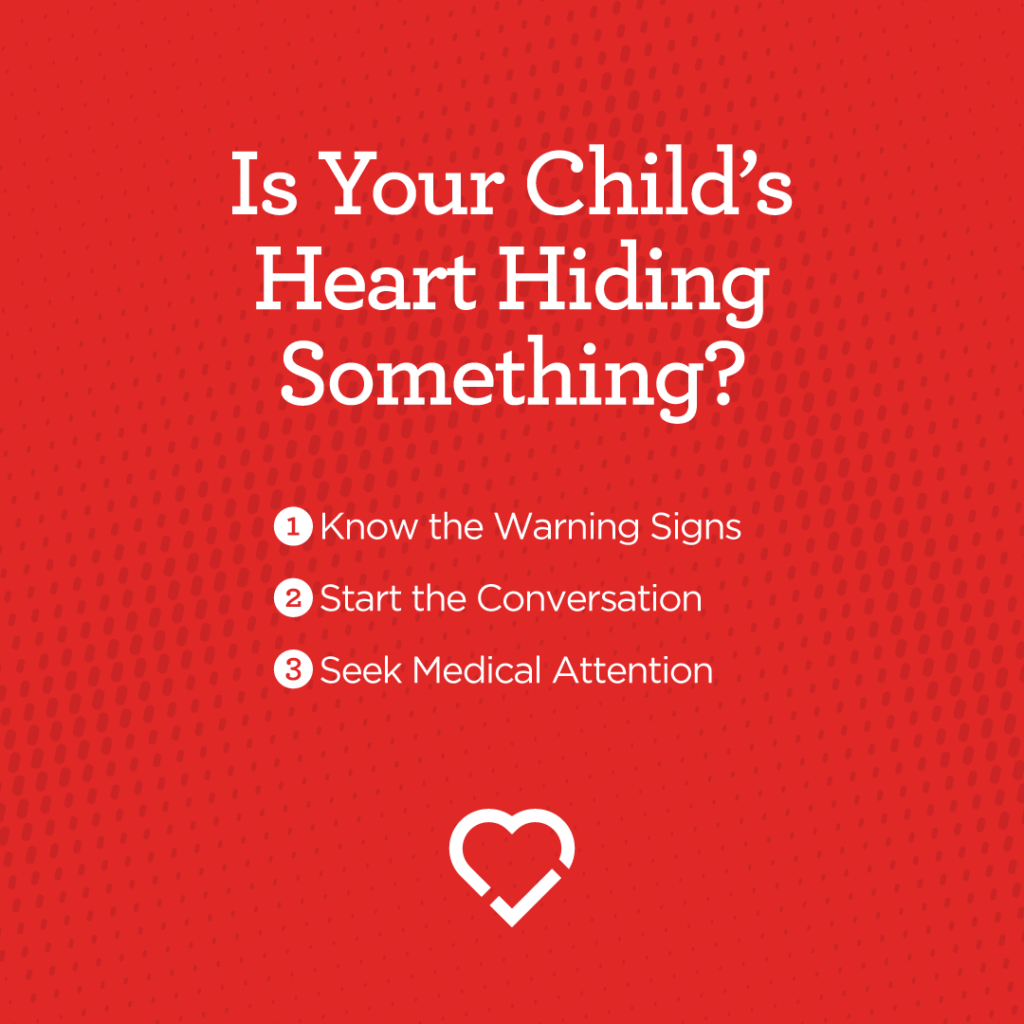As parents and guardians, we want nothing but the best for our children. We want to see them grow, learn, explore, succeed, and we’re committed to doing everything we can to protect them through the ups and downs of life. But how can we do that when threats to their wellbeing aren’t always clearly visible?
Often times, subtle warning signs of heart issues in children and adults are not recognized or are simply non-existent until sudden cardiac arrest (SCA) strikes. The Children’s Hospital of Philadelphia estimates that 30-50% of SCA cases do carry warning signs beforehand, making it critically important for the general public to understand what to look for in young people. 1
So what is a parent or guardian to do? Check out a few ways you can stay alert to help identify red flags that your child’s heart might be hiding something:

Know the Warning Signs
While not every SCA victim will display warning signs leading up to collapse, some heart conditions do carry symptoms that can alert caregivers to seek medical attention before SCA occurs. For those born with an undetected heart condition, symptoms can show up at any time in a child’s life, so it’s important to take notice of anything unusual.
Warning Signs and Symptoms of SCA from Parent Heart Watch 2
- Fainting or seizure during or after physical activity
- Fainting or seizure resulting from emotional excitement, distress or startle
- Chest pain or discomfort/ racing heartbeat
- Unexplained fainting or seizures
- Unusual shortness of breath
- Unusual fatigue/tiredness
- Racing heartbeat, especially when the body is at rest
- Dizziness/lightheadedness during or after physical activity
- Family history of heart disease
- Family history of unexpected sudden death during physical activity or during a seizure, or any other unexplained sudden death of an otherwise healthy family member under age 50
Family Risk Factors for SCA from Parent Heart Watch2
- Family history of heart disease
- Family history of unexpected death during physical activity or seizure
- Unexplained death of a seemingly healthy family member under age 50
- Unexplained near/drowning or car accident of family member
Does your family have a history of sudden cardiac death or heart conditions? Family history can be an indicator of risk for sudden cardiac arrest in your child. 1 This is important information to share with your pediatrician, who will help you to explore further testing options.
Start the Conversation
As parents, we know our children best and can often sense when something is “off” with them. Sudden cardiac arrest can be incredibly sneaky, so it’s important not to assume that we will be able to immediately tell if our child is experiencing concerning symptoms. By letting our kids know they can always come to us if something doesn’t feel right, we can help them to feel more comfortable expressing symptoms. Starting the conversation can go a long way when it comes to young hearts!
Seek Medical Attention
You’ve noticed one or more of these red flags in your child…now what comes next?
If your child is showing one or more of the concerning signs/symptoms listed above, do not wait to contact your pediatrician.
Early and quick action can save lives. Make an appointment as soon as possible with your pediatrician to discuss what your child is experiencing. Even if testing is performed and no areas of concern are found, it is always better to be proactive rather than wait.
Call 911 immediately if any of the signs or symptoms your child is experiencing appear life threatening.
At Living for
Zachary, we recognize that preventing SCA is a multi-faceted issue that
involves awareness, education, youth heart screenings, CPR training, and AED
use. By knowing what to watch for
and how to react should red flags appear, we can be better equipped to
make proactive choices for our children’s heart health.

